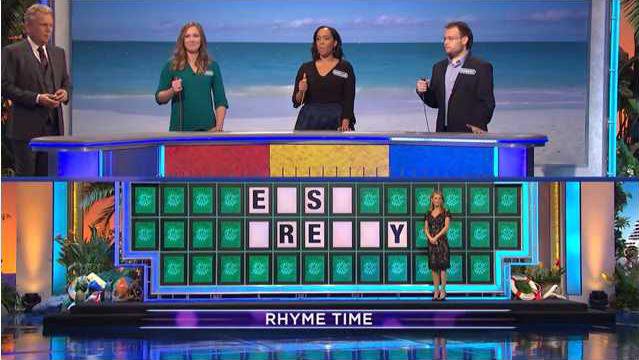CULVER CITY I imagine most kids watched early evening game shows with their parents. In the Hazen household, I caught a lot of episodes of Jeopardy! with my dad, who almost always knew the answer before the actual contestants were able to buzz in and would have a little extra pep in his step when he knew the final question and no one else did.
That not-so-endearing quality has carried over to me, and now Im the one shouting Who is or What is prefixed questions at Canadian host Alex Trebek (who Im almost 100 percent sure cant hear me). I love trivia. I read a book about trivia. I go to pub trivia twice a month. But I still dont think I would be any good at the real deal.
Enter maybe the greatest Wheel of Fortune contestant of all time: Robert. I have almost no doubt that Robert spent many evenings watching Pat and Vanna and solving the puzzle with a bowl full of Cheetos in his lap and a head full of hope hed make it to California so he could spin the big wheel.
Robert was recently on the show and a video of his appearance has been making the rounds on the Internet, and it really is flabbergasting. He opened the show by solving 13-word Places puzzle with only one letter revealed.
Its worth watching the clip if only to see his co-contestants thinly veiled annoyance.
Its too bad that Wheel of Fortune doesnt have recurring champions, because Robert couldve been the WOF equivalent of Ken Jennings.
That not-so-endearing quality has carried over to me, and now Im the one shouting Who is or What is prefixed questions at Canadian host Alex Trebek (who Im almost 100 percent sure cant hear me). I love trivia. I read a book about trivia. I go to pub trivia twice a month. But I still dont think I would be any good at the real deal.
Enter maybe the greatest Wheel of Fortune contestant of all time: Robert. I have almost no doubt that Robert spent many evenings watching Pat and Vanna and solving the puzzle with a bowl full of Cheetos in his lap and a head full of hope hed make it to California so he could spin the big wheel.
Robert was recently on the show and a video of his appearance has been making the rounds on the Internet, and it really is flabbergasting. He opened the show by solving 13-word Places puzzle with only one letter revealed.
Its worth watching the clip if only to see his co-contestants thinly veiled annoyance.
Its too bad that Wheel of Fortune doesnt have recurring champions, because Robert couldve been the WOF equivalent of Ken Jennings.








